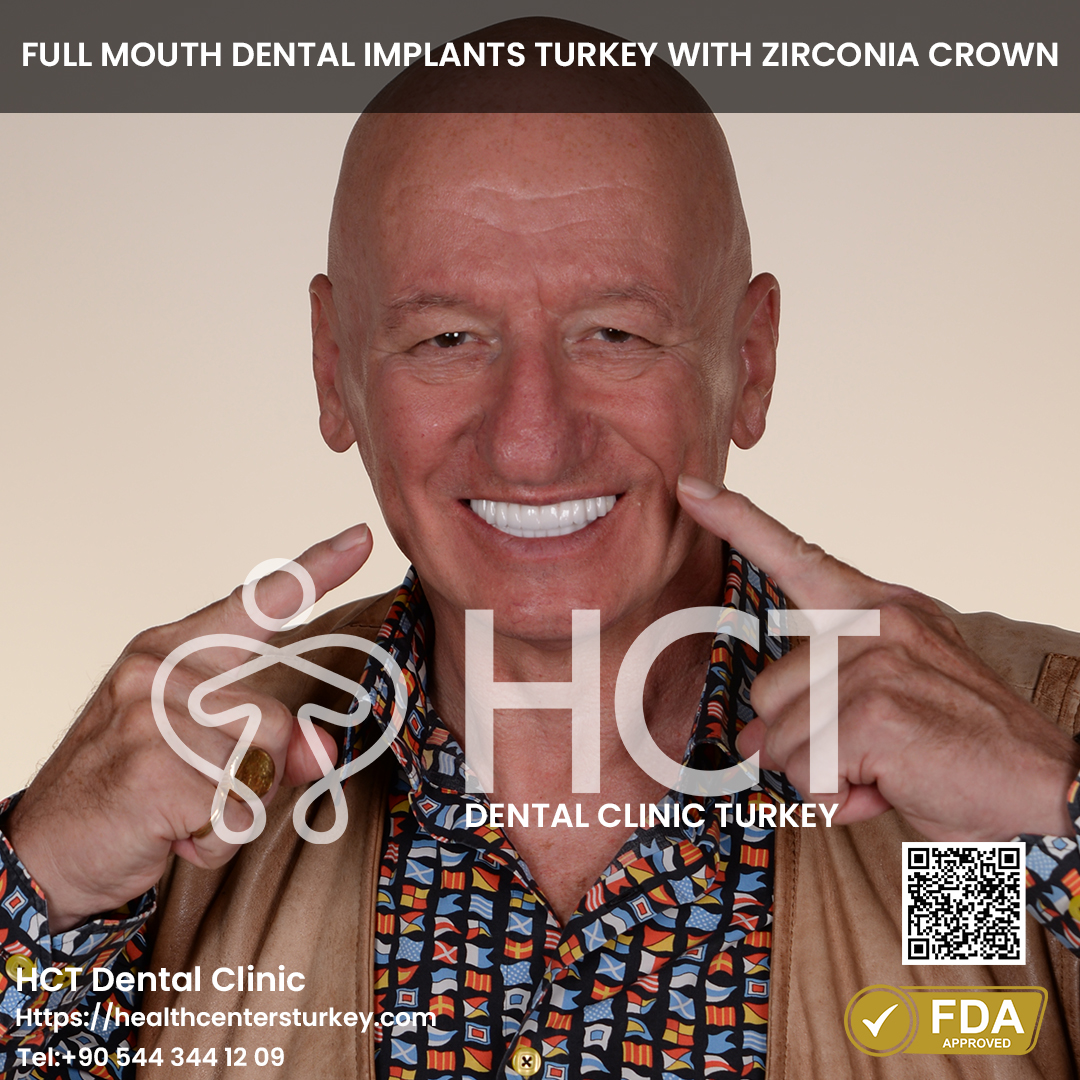Outstanding Teeth Clinics Offered to International Patients in Turkey
Dental implants have turn out to be a popular answer for these looking to replace missing teeth. Understanding how these implants can have an result on adjacent teeth is essential for anybody contemplating this procedure, in addition to for dentists and specialists involved in dental care.

One important facet is that dental implants are designed to be anchored into the jawbone, which means they're impartial of adjacent teeth. Unlike dental bridges, which frequently require the alteration of neighboring teeth, implants can fill the gap without compromising the health or structure of these surrounding teeth.
This independence helps keep the integrity of adjacent teeth. When a tooth is lost, there can be a natural tendency for neighboring teeth to tilt or shift into the empty area. Such movement can result in misalignment, which may have an result on chew and overall oral health. By placing an implant, you successfully prevent this potential shift, promoting higher alignment in the long term.
Fast Care Services for Time-Conscious Visitors
Additionally, dental implants assist maintain bone density in the jaw. A natural tooth root provides stimulation to the encircling bone, keeping it wholesome and strong. When a tooth is missing, the bone can start to deteriorate as a outcome of lack of stimulation. With a dental implant mimicking a natural root, bone loss could be minimized, which indirectly benefits adjacent teeth by preserving the overall structure of the dental arch.
While dental implants are advantageous, improper placement can impact neighboring teeth. If an implant is positioned too shut to a different tooth, it might exert undue strain on that tooth, resulting in discomfort or potential injury. Proper planning and imaging techniques are important for avoiding such issues.
A Look at the Popularity of Dentistry in Turkey
Moreover, maintaining good oral hygiene is essential after receiving an implant. If not properly cleaned, surrounding teeth could become susceptible to dental points similar to decay or gum disease. This underscores the significance of diligent oral care following the process to ensure both implants and adjacent teeth remain wholesome.
Regular dental check-ups are additionally important for monitoring the health of surrounding teeth. Dentists can determine any shifts or potential problems early, permitting for timely interventions. This proactive strategy ensures that each the implant and adjacent teeth can coexist without issues.
Dental Tourism: Enjoy Affordable Care in Turkey
Another consideration is the influence of implants on chunk force. When a single tooth is missing, the load of chewing might shift to adjacent teeth, doubtlessly leading to put on or pressure. Implants restore proper chew dynamics by redistributing forces within the mouth, which can shield surrounding teeth from undue stress.
Some sufferers may increase issues about the appearance of dental implants. Well-placed implants can blend seamlessly with present teeth, bettering general aesthetics. In distinction, failing to switch a missing tooth can lead to aesthetic issues, together with collapsing of facial structure and adjustments in smile dynamics.
It's also value discussing the psychological features of dental health. Experiencing tooth loss can adversely affect one’s self-esteem and willingness to interact socially. By restoring your smile with implants, you'll find a way to positively influence not only your oral health but in addition your emotional well-being.
Long-term success of dental implants usually hinges on varied factors, including the patient's health, maintenance habits, and the quality of the preliminary process. If adjacent teeth are wholesome and correctly cared for, the chances are they will continue to thrive alongside the implants.
Leading Dental Solutions in Antalya
In conclusion, dental implants play a vital role in not just restoring individual smiles, but in preserving the health and structure of adjacent teeth. By stopping shifting, sustaining bone density, and redistributing chunk forces, implants can make certain that surrounding teeth remain in optimum condition. Proper placement, hygiene, and common dental visits can additional improve the advantages of dental implants, resulting in a more healthy, extra assured smile for years to come back.
- Dental implants may help preserve the alignment of adjacent teeth by offering a steady anchor, stopping adjacent teeth from shifting into the hole left by a missing tooth.
- The presence of an implant might stimulate bone progress within the jaw, helping to preserve the overall structure and integrity of the adjacent teeth.
- Unlike traditional bridges, implants do not require alteration of surrounding teeth, thus preserving their strength and anatomy.
- Implants can enhance the distribution of chunk forces evenly throughout the dental arch, lowering the stress on neighboring teeth throughout chewing.
- A well-integrated dental implant can decrease the danger of bone loss in the area surrounding adjacent teeth, contributing to their long-term health and stability.
- The aesthetics of adjacent teeth can be improved because of the support supplied by implants, which might result in better overall cosmetic outcomes.
- With correct placement, dental implants can prevent gum recession round adjacent teeth by maintaining adequate dental architecture.
- Implants may help mitigate the risks of periodontal disease in close by teeth by promoting healthy gum tissue and offering a washable floor.
- Long-term success of dental implants can lead to improved oral hygiene routines, which in turn advantages the health of surrounding teeth.
- The improved practical ability of an implant can encourage patients to chew more successfully, thus growing saliva production and aiding in the safety of adjacent dental tissues.undefinedHow do dental implants affect adjacent teeth?
What are dental implants and how do they work together with adjacent teeth?undefinedDental implants are synthetic tooth roots which may be surgically placed into the jawbone. They present a secure foundation for replacement teeth whereas guaranteeing minimal disruption to adjacent teeth, preserving their integrity and alignment. Access World-Class Dental Services in Turkey.
Enhance Your Smile using Porcelain Veneers
Can dental implants cause problems for close by natural teeth?undefinedGenerally, dental implants do not harm adjacent natural teeth. However, if the implant just isn't positioned correctly or if there’s insufficient oral hygiene, it might lead to issues similar to adjacent tooth decay or gum disease.

Will getting a dental implant change the means in which my adjacent teeth feel?undefinedMost sufferers report no change within the sensation of adjacent teeth after implant placement. However, it might take a while to adjust to the presence of the implant, just like how one may adapt to other dental restorations.
Can dental implants help protect the health of adjacent teeth?undefinedYes, dental implants may help preserve the health of adjacent teeth by stopping bone loss that may occur after tooth loss. This preservation supports the go to website alignment of nearby teeth, lowering the chance of shifting or misalignment.
Health Tourism: Enjoy Affordable Care in Turkey
Do I want to modify adjacent teeth when getting an implant?undefinedTypically, adjacent teeth don't want alteration when putting an implant. This is likely one of the advantages of dental implants over conventional bridges, which frequently require reshaping adjacent teeth for help.
How does the healing strategy of an implant have an result on close by teeth?undefinedThe healing course of entails osseointegration, where the implant fuses with the jawbone. During this time, adjacent teeth remain unaffected and retain their operate, although it’s essential to follow post-operative care suggestions. Personalized Dental Care in Turkey.
Everything You Need to Know about Dental Procedures in Turkey
Can dental implants lead to bone loss round adjacent teeth?undefinedIf dental implants are placed correctly and cared for adequately, they need to not lead to bone loss around adjacent teeth. In fact, they may help stimulate bone development, combating the natural bone loss that usually follows tooth extraction.
What precautions should I take to guard adjacent teeth after getting an implant?undefinedRoutine dental hygiene, including brushing and flossing, along with regular dental check-ups, is essential. Avoiding exhausting meals and following your dentist’s aftercare directions will also defend both the implant and adjacent teeth.
Is it common for adjacent teeth to shift after an implant is placed?undefinedIt's not typical for adjacent teeth to shift after an implant placement, particularly when the implant is placed appropriately and maintained properly. If there’s any motion, it may be as a outcome of this contact form other underlying points that ought to be evaluated by a dental skilled.
 Jonathan Taylor Thomas Then & Now!
Jonathan Taylor Thomas Then & Now! Bug Hall Then & Now!
Bug Hall Then & Now! Jenna Jameson Then & Now!
Jenna Jameson Then & Now! Matilda Ledger Then & Now!
Matilda Ledger Then & Now! Nicholle Tom Then & Now!
Nicholle Tom Then & Now!